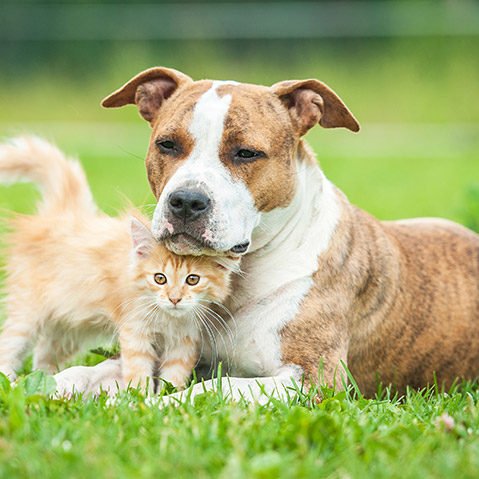Be Realistic
It’s important that you are real with yourself. The idea of getting a new dog or cat is exciting. They are cute and loyal and top-notch best friend material--but they are also a lifetime commitment. A dog or cat impacts almost every element of daily life and there's really no such thing as a "low maintenance" pet. Space limitations play a role too - an active breed may not be the right fit for a studio apartment. It may even be against your lease or homeowner's insurance policy, so it's important to understand your limitations. Besides the emotional nourishment they require, dogs and cats are a financial investment too, so ensure you have the resources to offer a truly loving, safe and healthy home. Before you begin to look at adorable adoptables who will tug on those heartstrings and yelp "bring me home," ask yourself:
-
- How much time do I have to give to a pet each day for walks, playtime, feeding, cuddles, etc?
- How would I prefer to spend that time with a prospective dog or cat? Is cuddling the coolest, or would I prefer to be out hitting those trails? Is agility training or something else how I want to spend my weekends? The answer to this will give some insight into what type and breed of pet may suit you best.
- What will I do if and when I have to be out of the home for extended periods? Can I afford or find a pet sitter near me?
- How much expendable income do I have to spend on a pet and, if funds are limited, what nearby services might help me provide the best care? (For example, folks who have limited funds should consider looking at spay/neuter clinics near them to avoid an "oops" litter and the big medical bills that come with them.)
- How much do I value a tidy home? While this may seem a strange one, certain dog and cat breeds will equal A LOT of cleaning-up, while others may be easier to sweep up after.
- Are there certain limitations to the kind, size or breed of dog or cat I can have?
Do Your Research
Though each pet is unique, doing some research on specific dog and cat breeds can give you a general sense of characteristics associated with different pets. Consider your current lifestyle and what type of dog would be compatible. Some dogs require more work because they have higher energy levels or more frequent grooming needs. Also take a look at initial cost. Puppy-proofing your home may make a dent in your budget. Food, beds, collars, and toys all cost money. So do vaccinations, wellness check-ups, tags, licenses, pet insurance, and additional pet rental deposits a landlord may require. See what the cost of adding a dog to your family is and make sure you can afford it in your monthly and longer-term budgeting. It's okay if you need to save up to pay for initial costs. It's a big deal to add a pet into your life, so take all the time you need to prepare.
Decide What Fits Best In Your Family
Before stepping foot into a shelter or browsing sites of adoptable pets, decide what you do and do not want. Have a few breeds, general size of dog, and characteristics in mind. Keep in mind that each dog or cat is an individual, but they are likely to reflect certain characteristics from their breed. If shedding or drooling are issues for you, know that and hold firm. If you want to nourish and support a previously abused dog, know that and speak to shelter staff about what it will take. If you want to avoid the massive training effort a puppy or kitten can take, be prepared and ask about an older or adult pet. Think about the traits you want in a companion and be as specific as you can about what's going to work for you, your family, and your lifestyle. Keep in mind that dogs and cats can vary a great deal within a given breed.
Visit Local Shelters & Rescue Groups
Walking into a shelter can be an emotional experience. It's devastating to see so many caged dogs and cats needing a home. Before walking in, many shelters have websites so you can browse their current pets up for adoption. Sites like Petfinder.com and Adopt-a-Pet even offer centralized databases where you can search according to your zip code. Take a look online and see what adorable adoptables could be a good fit for you. When you're ready, reach out to the groups that have potentials.
Research Adoption Requirements
Adoptions will require paperwork and, usually, an adoption fee that is used for the care of the remaining pets at that group. Some groups require things like fenced yards and home-checks, while others don't. Find out the requirements before you do a meet-and-greet to help avoid any problems with the adoption.
Ask Questions
Shelter staff and volunteers often have a good sense of the animals and their personalities. Ask questions throughout the entire process. They want the dogs and cats adopted, and they equally want to ensure the pets find the forever home that's right for them. Some places offer a foster-to-adopt program or a grace period. These might be good options if you aren't exactly sure that this is the right pet for you and your family. Remember, even after adoption, the staff are there to help. They can help you find a good groomer, vet, or trainer in the area and help talk you through growing pains that may occur.
When you know, you know
You want to avoid an impulsive adoption, so do all the research and take your time meeting dogs or cats and inquiring about them. If you know what you want and are patient, when you meet the right pet, you'll know it--and so will they!










